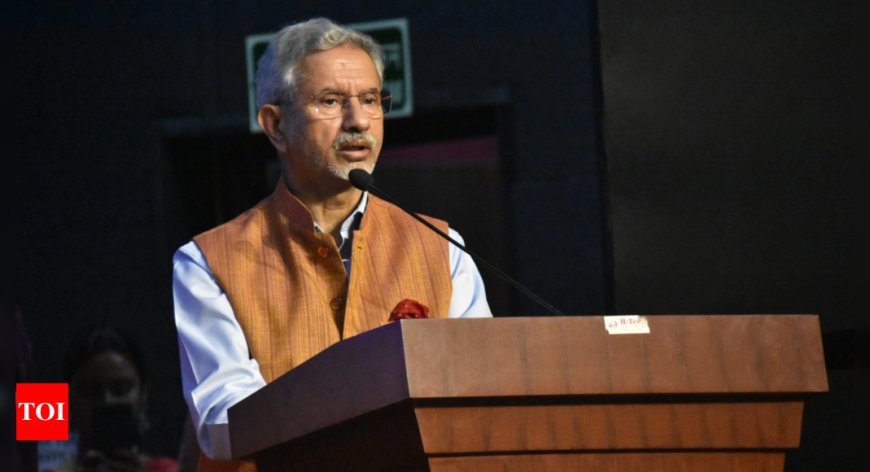'Don’t want too much foreign influence on our decision-making': Jaishankar on India's foreign policy
External affairs minister Dr S Jaishankar emphasized India's strategic position in global affairs while addressing students at IIT (BHU) Varanasi. He highlighted the need for balancing international relationships and maintaining national independence. Jaishankar also underscored India's advancements in technology and the importance of cultural ties to strengthen national identity.

Don’t Want Too Much Foreign Influence on Our Decision-Making: Jaishankar on India's Foreign Policy
In a recent statement, External Affairs Minister S. Jaishankar emphasized India's commitment to maintaining an independent stance in its foreign policy. Highlighting the importance of sovereignty, he articulated that India does not wish to be swayed excessively by foreign influences in its decision-making processes.
Independence in Foreign Policy
Jaishankar's remarks underline the central theme of India’s strategic autonomy. He pointed out that while India acknowledges the importance of global partnerships, it must carefully navigate these relationships to ensure that national interests remain intact. This approach reflects a growing sentiment within India's political corridors about the need for self-reliance amid global uncertainties.
Current Global Landscape
The context of Jaishankar's statement comes at a time when geopolitical dynamics are rapidly shifting. Countries are increasingly reevaluating their alliances and dependencies. In this milieu, India aims to fortify its decision-making framework against external pressures while fostering collaborative ties that respect its sovereign rights.
Collaborative Yet Independent
While highlighting the importance of independence, Jaishankar also acknowledged the role of partnerships in addressing significant issues like climate change and terrorism. He advocated for collaboration with countries that share India's values, yet insists that such partnerships must not compromise the nation’s autonomy.
This narrative is a reflection of the government’s broader strategy, which seeks to balance engagement with major powers while upholding India's unique position on the world stage. The minister's statement resonates in the ongoing dialogues about how nations like India can assert their interests in a multilayered global framework.
Conclusion: A Balanced Approach to Foreign Policy
In summary, Jaishankar’s insights offer a robust framework for understanding India's aspirations in the international arena. The emphasis on avoiding excessive foreign influence is clear—a call for a balanced approach that secures India's interests while engaging positively with the rest of the world. For more updates, visit dharmyuddh.com, where you can find detailed analyses and insights into India's evolving foreign policy landscape. Keywords: Jaishankar foreign policy, India sovereignty in foreign policy, India foreign influence, Indian diplomacy independence, geopolitical strategy of India, global partnerships India, self-reliance in foreign policy, India strategic autonomy







